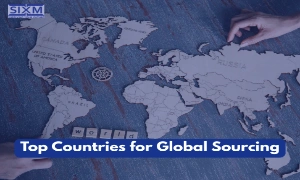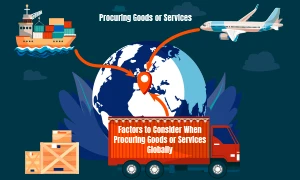The global fashion industry is evolving faster than ever, and Mexico has quickly risen as a preferred hub for apparel sourcing. Thanks to its proximity to the U.S., competitive production costs, and favorable trade agreements, the country offers brands an attractive alternative to distant markets like Asia. For companies looking to shorten lead times, reduce logistics costs, and stay agile in a fast-changing market, Mexico provides a strategic advantage.
But with these opportunities comes responsibility. Without strong quality control (QC), apparel sourcing in Mexico can lead to serious setbacks—ranging from product defects and hidden costs to compliance risks and reputational damage.
In this blog, we’ll explore why apparel quality control is critical when sourcing in Mexico, the common challenges brands face, and the best practices that ensure long-term success and consumer trust.
What is Apparel Quality Control?
Apparel quality control (QC) refers to a systematic process of ensuring that clothing and textile products meet specific standards of quality, consistency, and compliance before reaching consumers.
- Fabric inspection to check durability, shrinkage, and color fastness.
- Stitching and seam strength evaluation to avoid garment failure.
- Fit and size checks to ensure uniformity across production batches.
- Safety and compliance testing to meet international regulations.
Why Mexico Has Become a Key Apparel Sourcing Hub
Mexico has steadily positioned itself as one of the most attractive destinations for apparel sourcing, especially for U.S. and Canadian fashion brands. The country’s combination of geographic advantage, competitive costs, and trade agreements makes it an ideal choice for global apparel companies that prioritize speed, quality, and compliance. Let’s dive deeper into the three main reasons:
1. Geographic Proximity to the U.S. Market
- Faster Lead Times: Compared to Asia (China, Bangladesh, Vietnam), where shipping times can take 30–45 days, products from Mexico can reach U.S. warehouses in 2–7 days by truck or a few days by sea. This drastically reduces lead times.
- Ideal for Fast Fashion: Retailers like Zara, H&M, and Shein depend on quick turnaround cycles. Being able to replenish stores quickly with trendy apparel is a game-changer.
- Reduced Logistics Risks: Shorter shipping routes mean fewer risks of delays due to port congestion, weather disruptions, or rising fuel costs.
- Lower Transportation Costs: Moving goods across the U.S.–Mexico border is more cost-efficient than shipping from Asia, especially with rising container shipping prices.
2. Competitive Labor and Production Costs
- Affordable Workforce: Labor costs in Mexico are lower than in the U.S. and Europe, making it cost-effective for brands looking to reduce expenses without fully outsourcing to Asia.
- Skilled Workforce: Mexico has a long tradition of textile and garment manufacturing, meaning workers bring valuable expertise in sewing, cutting, embroidery, and finishing.
- Higher Quality Output: Unlike some ultra-low-cost markets, Mexican factories tend to offer better quality assurance and compliance standards, which reduces the risks of defects and returns.
- Lower Overhead Costs: Energy, infrastructure, and operational expenses are also relatively competitive, making production more sustainable for long-term partnerships.
3. Trade Agreements and Tariff Benefits
- Tariff-Free Exports: Most apparel products can be exported to the U.S. and Canada with reduced or zero tariffs, making them more price-competitive compared to Asian imports.
- Simplified Customs: The agreement streamlines cross-border movement, helping reduce paperwork and inspection delays.
- Encourages Regional Supply Chains: USMCA promotes sourcing raw materials and fabrics within the region, which boosts Mexico’s textile sector and makes the supply chain more reliable.
- Stable Trade Relationship: Mexico’s strong trade ties with the U.S. create long-term stability for fashion brands that want to avoid the unpredictability of overseas tariffs and sanctions (like those seen with China).
Challenges of Apparel Sourcing in Mexico
While Mexico is a strong sourcing hub for apparel, brands must navigate certain challenges to ensure smooth operations:
1. Variability in Factory Standards
Not all factories maintain the same quality level; some still use outdated processes, which can lead to inconsistent stitching, sizing, or finishing.
2. Ethical & Environmental Concerns
Without proper audits, there’s a risk of associating with factories that exploit workers or use unsustainable practices, harming both people and the planet.
3. Hidden Costs Without Quality Control
Skipping strong QC can result in expensive product returns, shipment recalls, and long-term damage to brand trust—costs that far outweigh preventive measures.
Why Apparel Quality Control is Critical When Sourcing in Mexico
For brands sourcing apparel from Mexico, quality control (QC) is not optional; it’s a necessity. Strong QC practices help maintain standards, protect brand reputation, and ensure long-term profitability. Here’s why it’s so critical:
1. Meeting Buyer Specifications and International Standards
Global buyers often require apparel to comply with ISO standards, retailer-specific guidelines, and safety regulations.
Without strict QC, there’s a risk of producing garments that fail tests for durability, shrinkage, or colorfastness.
Ensuring compliance from the start helps avoid shipment rejections and strengthens relationships with international retailers.
2. Protecting Brand Image and Consumer Trust
In the fashion world, brand reputation is everything—and just one batch of defective clothing can cause significant damage.
Consumers quickly lose trust if products are poorly made, leading to negative reviews and lost sales.
Consistent QC helps brands deliver reliable quality, which in turn builds loyalty and repeat purchases.
3. Reducing Returns, Recalls, and Wastage
Every defective garment returned is a direct cost to the brand, not just in refunds but also in logistics and lost sales.
Large-scale recalls due to poor QC can be devastating financially and reputationally.
By catching defects early, QC minimizes waste, aligns with sustainability goals, and reduces the environmental impact of apparel production.
Best Practices for Quality Control in Mexican Apparel Manufacturing
To ensure consistent quality and minimize risks, brands sourcing from Mexico should adopt proven quality control practices. These methods help maintain international standards while building trust with buyers and consumers alike.
1. On-Site Inspections and Factory Audits
Conducting regular inspections at different stages of production allows brands to identify problems early.
Factory audits help verify a supplier’s production capacity, compliance, and working conditions before long-term contracts are signed.
This proactive approach reduces the risk of late discoveries and costly errors.
2. Implementing AQL (Acceptable Quality Limits) Standards
AQL provides a standardized method of measuring product defects during inspections.
By applying these limits, brands can set clear benchmarks for what is acceptable and what must be rejected.
This ensures consistency across multiple batches and suppliers, reducing variability in quality.
3. Leveraging Third-Party QC Services
Independent QC firms offer unbiased inspection services, making them especially valuable for international buyers.
These firms provide detailed reports on factory performance, product quality, and compliance.
Partnering with trusted third-party inspectors helps global brands maintain transparency and accountability in the supply chain.
4. Continuous Training and Process Improvement
Investing in employee training enhances technical skills, efficiency, and workplace safety.
Continuous improvement programs ensure factories keep up with new technologies and sustainability practices.
A skilled workforce reduces errors, strengthens productivity, and ensures long-term quality gains.
FAQs on Apparel Quality Control in Mexico
Quality control ensures that garments meet international standards like ISO and retailer-specific requirements. It helps prevent defects such as poor stitching, fabric flaws, or wrong sizing. Without QC, brands risk shipment rejections, costly recalls, and reputational damage.
Strong QC reduces defective garments that would otherwise end up as waste. It also verifies whether factories are using eco-friendly fabrics, safe dyeing processes, and proper wastewater treatment. This aligns brands with global sustainability goals and consumer expectations for responsible fashion.
Yes, QC is equally important for small and mid-size brands. Even smaller orders require consistency, and defective shipments can be more damaging for them due to limited budgets. With QC, SMEs can deliver reliable quality, build trust with buyers, and scale production confidently.
Many established factories in Mexico comply with labor laws, wage requirements, and safety regulations. However, not all do. That’s why brands must conduct third-party social audits to confirm compliance with global standards such as SA8000 (Social Accountability) or WRAP (Worldwide Responsible Accredited Production).
Skipping QC may lead to inconsistent product quality, higher return rates, retailer penalties, or even brand blacklisting. In extreme cases, it can result in legal issues if garments don’t meet safety regulations in markets like the U.S. or the EU.
QC should ideally be conducted at three stages:
- Pre-production inspection: To check fabrics, trims, and raw materials.
- During production inspection: Ensure processes like stitching, labeling, and sizing are consistent.
- Final inspection: To verify finished goods meet specifications before shipment.
Partner with SixMexico for Reliable Apparel Quality Control!
Sourcing apparel from Mexico provides fashion brands with key advantages like faster lead times, competitive costs, and tariff benefits. But without strong quality control, these benefits can quickly turn into risks—leading to defective products, compliance issues, and loss of brand trust. That’s why investing in professional QC is critical.
At SixMexico, we specialize in providing complete apparel quality control solutions, including factory audits, on-site inspections, product testing, and compliance checks. Our mission is to help global brands source from Mexico with confidence, ensuring every garment meets international standards while supporting ethical and sustainable practices.
By partnering with SixMexico, you safeguard your supply chain, reduce hidden costs, and protect your brand reputation.

